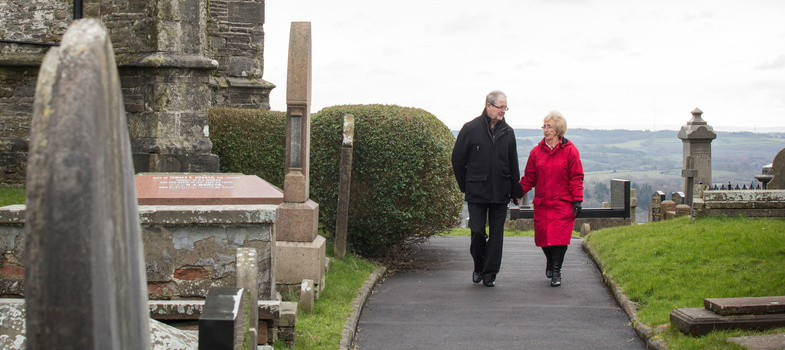2.7 Summary of section 2
We have looked in detail at the palliative and end of life definitions and principles of care. By applying these principles early in the condition’s trajectory, it improves the outcomes of care. We also examined the challenges of applying these principles in practice, and finally examined the directives which have influenced the development of palliative and end of life care in Parkinson’s. You will have considered how this information can help you to improve your practice and share your knowledge with other health and social care professionals. We will now look at a case study exercise. You can record your thoughts in the reflection log.
Reflective exercise
In this exercise we introduce Mr Edwards, who has been newly diagnosed with Parkinson’s. Think back to the information in section 2 about the definition and principles of palliative care and consider how you would apply these as you read through the case study.
Case study
Mr Alex Edwards is a 55-year-old architect, married with two teenage children. He went to see his GP complaining of a painful right shoulder, which he feels is also affecting his handwriting as it has become small and illegible. This worries him because it is impacting his job. He also states that his sleep pattern is disturbed because he feels stiff and sore at night and unable to turn over in bed. His GP explains that he might have Parkinson’s, explains what it is and then makes a referral to a neurologist.
Because Mr Edwards and his family are anxious about his diagnosis, he books a private appointment with a neurologist to reduce the waiting time. The neurologist confirms he has Parkinson’s and after discussion with Mr Edwards decides to commence him on a dopamine agonist, and arranges to review him in three months.
In the meantime, Mr Edwards was referred to the Parkinson’s specialist nurse, who organised to meet him and his family. They were able to discuss their thoughts and feelings about the diagnosis and ask questions about Parkinson’s and the medication. The Parkinson’s nurse gave them further written information on Parkinson’s, as well as her work contact number in case they required further advice in the near future.
She referred Mr Edwards to physiotherapy to assess and offer him advice about exercise and how to maintain his physical wellbeing. She also referred him to occupational therapy to discuss his work and management of his handwriting, to enable him to maintain his confidence at work.
She provided information about Parkinson’s UK, explaining how everything the charity does is shaped by people affected by Parkinson’s. She also signposted the family to a Parkinson’s UK local support group.
Reflective exercise 1
Reflect on the case study and identify how the psychological, physical and social aspects of care are being supported here.
Use the reflection log to record your thoughts.
Discussion
In your reflection you may have considered the following:
By supporting Mr Edwards and his family with information, education and guidance on his condition and the medication choices, the GP, neurologist and Parkinson’s specialist nurse are aiding Mr Edwards to accept his diagnosis and to make informed choices about his treatment.
His quality of life is enhanced through informed choices about medication, as well as appropriate referrals to the occupational therapist and physio to maintain his physical ability and assist him to manage at work, relieving his stress about his ability to continue at work.
His family and Mr Edwards will receive information and support from Parkinson’s UK and the local support group, which will be invaluable as his condition progresses.
The Parkinson’s specialist nurse will be their main point of contact offering a support system to help Mr Edwards and his family come to terms with the diagnosis and ongoing management.
Reflective exercise 2
In your reflection log identify how some of the principles of palliative care are being applied in this early stage of diagnosis.
Discussion
In your reflection you may have considered the following:
From the principles of palliative care we have incorporated a team approach, offering a support system to enhance quality of life through involvement of the allied health professionals.
Offering family support through the support group and Parkinson’s UK.
Through education, information and planned professional support, his psychological, physical and social wellbeing are enhanced
Quiz questions
Now try Quiz 1 [Tip: hold Ctrl and click a link to open it in a new tab. (Hide tip)] .
This is the first of three section quizzes. You will need to try all the questions and complete the quiz if you wish to gain a digital badge. Working through the quiz is a valuable way of reinforcing what you’ve learned in this section. As you try the questions you will probably want to look back and review parts of the text and the activities that you’ve undertaken and recorded in your reflection log.
2.6 Which UK directives have influenced palliative and end of life care in Parkinson’s?
